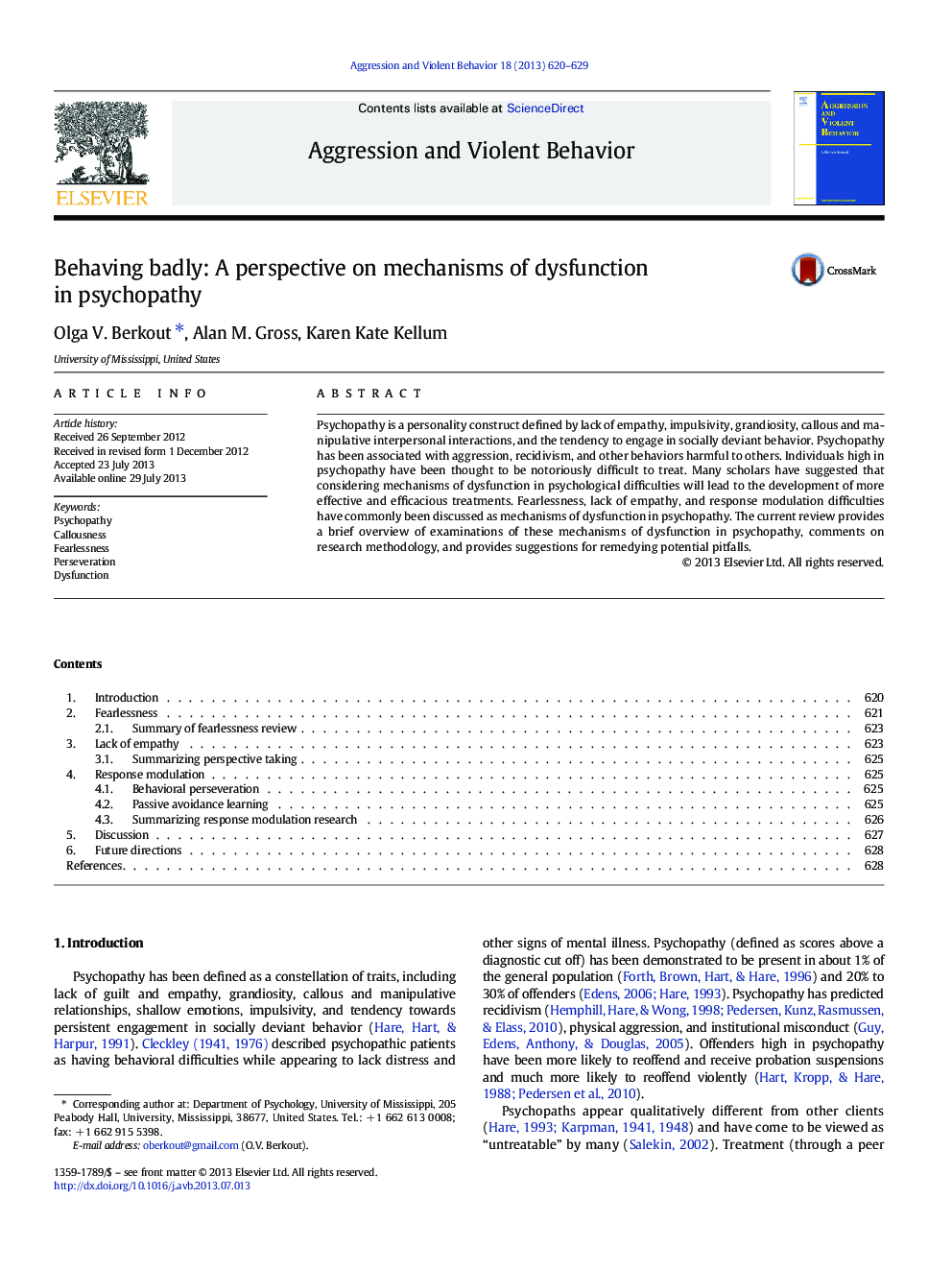| Article ID | Journal | Published Year | Pages | File Type |
|---|---|---|---|---|
| 94684 | Aggression and Violent Behavior | 2013 | 10 Pages |
•Individuals high in psychopathy have been considered difficult to treat.•Mechanisms of dysfunction may inform treatment development in psychopathy.•Fearlessness, lack of empathy, and response modulation research are reviewed.
Psychopathy is a personality construct defined by lack of empathy, impulsivity, grandiosity, callous and manipulative interpersonal interactions, and the tendency to engage in socially deviant behavior. Psychopathy has been associated with aggression, recidivism, and other behaviors harmful to others. Individuals high in psychopathy have been thought to be notoriously difficult to treat. Many scholars have suggested that considering mechanisms of dysfunction in psychological difficulties will lead to the development of more effective and efficacious treatments. Fearlessness, lack of empathy, and response modulation difficulties have commonly been discussed as mechanisms of dysfunction in psychopathy. The current review provides a brief overview of examinations of these mechanisms of dysfunction in psychopathy, comments on research methodology, and provides suggestions for remedying potential pitfalls.
